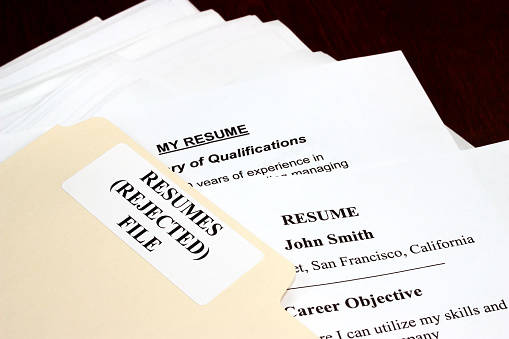The sheer folly of multiple versions of your resume

How many versions of your resume do you have? How many versions of your resume are out there, either being circulated or are posted? How many times have you “tailored it to the position” for which you’re applying or restructured it because you were trying to make a career change into another industry, but kept both or all your versions?
If your answer to the first two questions is anything more than one, or your response to the other question is any number at all, please sit down and think this over.
Not the first time I have discussed this, today I’ll reiterate a few points and add one, given how technology not only gives us new capabilities, but brings us new caveats as well.
First, let’s revisit some old truths that never fade. The practice of using multiple versions of your resume — whether you realize it or not — causes you to lose focus; blurs your self-image; weakens your resolve; encourages you to stray from your mission (I sure hope you have one); pigeonholes you; muddles your identity; makes you appear indecisive to others (when someone who can help you asks how you’d like to be helped, what are you going to say?); actually makes you less decisive from the start; creates a challenge in just keeping track of what you’ve sent to whom; and — in case you worry about things like your ethical compass — makes you less than truthful on all but one of these resumes.
And the more versions you have, the truer this is. For example, a reader called me for resume help, and I asked her to email her resume for my review. She said she had “a couple of versions,” so I asked to see them. Little did I expect to find 13 attachments spilling out of her email! No, I didn’t read them all. That’s just nuts.
There are many examples of this silliness, but one that should ring true is Ben, who was seven years into his career and looking for work. He had the good fortune of being referred to a company by a friend who worked there — a big advantage. But that advantage quickly dissolved when the hiring manager got the version of Ben’s resume that his friend passed along. It was noticeably different from the version Ben previously submitted via the company’s website for another job, not to mention it was different from his LinkedIn profile.
Forget Ben for a second. How do you think his friend felt when the manger asked her if she was aware of Ben’s disingenuousness?
Now back to Ben: You know how that ended, right?
Yet so many career “professionals” still insist on advising job-seekers to create multiple versions of their resume, of tailoring it to each job application, even adding to their latest version as they hear employers express their needs. Friends, if there’s something that officially could be called malpractice in this business of career coaching, that would be it. Geez!
But leaving it at that level of argument still would leave it open to argument. Truly, everything I said is value-driven (except, of course, Ben). So here’s an indisputable truth, and if, after considering this, you still disagree, then I apologize for wasting your time today.
Multiple surveys reveal that between 87 and 96 percent of recruiters and hiring managers vet all — yes, all — candidates by checking LinkedIn profiles. In other words, almost everyone does this all the time.
Now, this is simple: You have more than one version of your resume but only one LinkedIn profile. Before you know it, you’ll be keeping Ben company. The LinkedIn factor leaves you nowhere to run, so stop running and please listen to me.
If you’re going to customize anything, customize your cover letter. (You do still write one, don’t you?) As for your resume, instead of changing it again and again, think about turning it into a strong, comprehensive, single document that portrays you as a multiskilled, broadly talented candidate capable of bringing that diverse skill set, and the perspective that comes with it, to the party. Aside from being truthful, it so 21st century.
Today’s and tomorrow’s workplaces increasingly will demand workers with multiple skills, not one-trick ponies, which is another reason to cease engagement in the futile effort to make your resume fit into every narrow hole you find.
Sure, this is easier said than done, and it takes thought, work and expertise, but it will keep you out of trouble and on track.
Multiple versions of your resume are sheer folly.
Career coach and corporate adviser Eli Amdur has been authoring his weekly “Career Coach” column since 2003, and is the author of his acclaimed career advice book, “It’s Not So Far From Here To There: The thinking person’s guide to well-managed career.” Adjunct professor of two graduate-level leadership courses at Fairleigh Dickinson University in New Jersey, he also is active on the speaker circuit. Visit his website at amdurcoaching.com.












